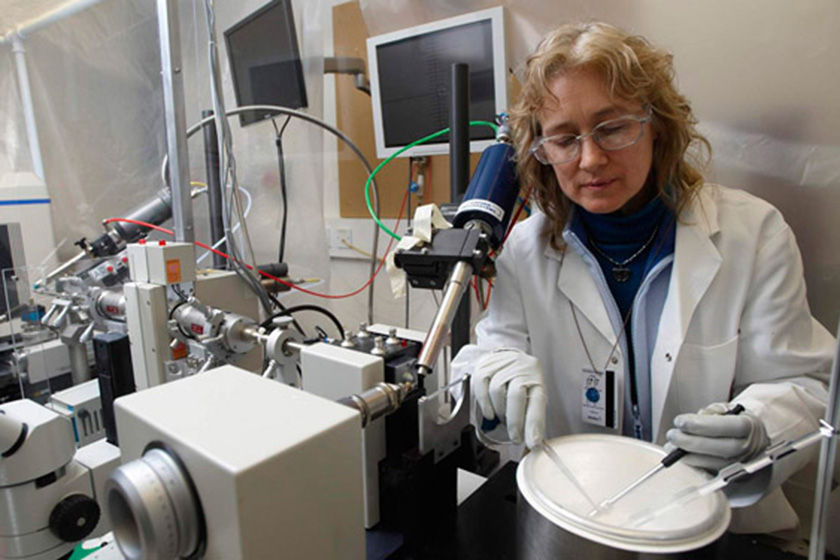York laboratory awarded Queen's Anniversary Prize
Posted on 21 November 2019
 The prize celebrates excellence, innovation and public benefit in work carried out by UK universities and colleges.
The prize celebrates excellence, innovation and public benefit in work carried out by UK universities and colleges.
The YSBL researchers study protein molecules: developing methods for looking at them, determining what the molecules look like and how they work, and how this knowledge can be exploited.
The methods developed at York are used by thousands of scientists around the world across many areas of science and industry.
Studies of individual proteins in YSBL have revolutionised understanding of fundamental living processes. These insights can directly contribute in the development of new medicines, such as modified insulins for treating diabetes, and also be used in industrial processes to improve sustainability and food security.
Recipients of the Queen’s Anniversary Prizes (2018 to 2020) were announced on 21 November at a ceremony at St James’s Palace in London.
The prizes are the highest national honour awarded in UK further and higher education and are granted by the Queen every two years.
Vice-Chancellor Professor Charlie Jeffery said: “This award is a fantastic achievement and richly deserved. It recognises the excellence and dedication of the YSBL team over more than 40 years.
“The Laboratory's work has had far-reaching impact: the benefits it brings to the global research community include not only its world-renowned methods and discoveries but also the outstanding scientists it has trained.
“To wider society this research contributes to the development of new medicines and also the development of new approaches in the search for novel drugs and therapies in medicine.
“The prize announced today adds to the five previous Queen’s Anniversary Prizes, providing further recognition of the quality and relevance of research carried out at York.”
Professor Tony Wilkinson, current leader of YSBL said: “YSBL works at the intersection of many different disciplines, harnessing the synergy of physics, computing and chemistry to answer questions about biological processes.
“This prize recognises the quality of the work of the many hundreds of scientists who have passed through the Laboratory over the past four decades and benefitted from the collaborative and flexible culture we have sustained. The Laboratory continues to evolve with new initiatives in advanced imaging methods and developing chemistry to study the role of the sugar molecules that are vital to living organisms.”
Further information:
Explore more news

Research suggests 700,000 children could be lifted out of poverty overnight by following Scotland's approach
Thursday 27 March 2025

Could a deeper understanding of the seasons and how they are changing improve resilience to climate change?
Thursday 27 March 2025

Perceived 'burden' of AI greatest threat to uptake in healthcare, study shows
Wednesday 26 March 2025

New study on medicinal plants established with York’s twin city in China
Monday 24 March 2025

Digitalising essential services risk widening inequalities for minoritised ethnic communities, research study warns
Friday 14 March 2025
